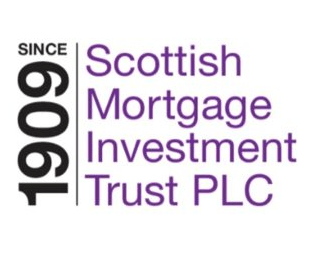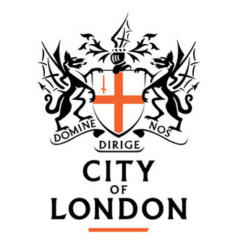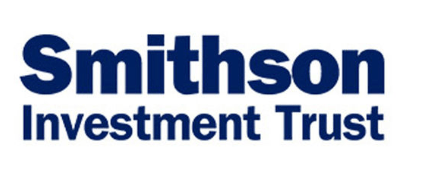Looking to broaden your horizons in your quest to grow your money? If so, it is well worth considering an investment trust.
Our Forex Signals
1 - month
Subscription
 Up to 15 signals daily
Up to 15 signals daily 76% success rate
76% success rate Entry, take profit & stop loss
Entry, take profit & stop loss Amount to risk per trade
Amount to risk per trade Risk reward ratio
Risk reward ratiomonth
3 - month
Subscription
 Up to 15 signals daily
Up to 15 signals daily 76% success rate
76% success rate Entry, take profit & stop loss
Entry, take profit & stop loss Amount to risk per trade
Amount to risk per trade Risk reward ratio
Risk reward ratiomonth
 Most popular
Most popular
6 - month
Subscription
 Up to 15 signals daily
Up to 15 signals daily 76% success rate
76% success rate Entry, take profit & stop loss
Entry, take profit & stop loss Amount to risk per trade
Amount to risk per trade Risk reward ratio
Risk reward ratiomonth
Lifetime
Subscription
 Up to 15 signals daily
Up to 15 signals daily 76% success rate
76% success rate Entry, take profit & stop loss
Entry, take profit & stop loss Amount to risk per trade
Amount to risk per trade Risk reward ratio
Risk reward ratioSeparate Swing Trading Group
 Up to 3 signals weekly
Up to 3 signals weekly 76% success rate
76% success rate Entry, take profit & stop loss
Entry, take profit & stop loss Amount to risk per trade
Amount to risk per trade Risk reward ratio
Risk reward ratiomonth
1 - month
Subscription
 Up to 15 signals daily
Up to 15 signals daily 76% success rate
76% success rate Entry, take profit & stop loss
Entry, take profit & stop loss Amount to risk per trade
Amount to risk per trade Risk reward ratio
Risk reward ratiotime
In a nutshell, by injecting capital in a UK investment trust, the provider in question will buy and sell shares, bonds, and other asset classes on your behalf.
3
Payment methods
Trading platforms
Regulated by
Support
Min.Deposit
Leverage max
Currency Pairs
Classification
Mobile App
Min.Deposit
$100
Spread min.
Variables pips
Leverage max
100
Currency Pairs
40
Trading platforms
Funding Methods







Regulated by
FCA
What you can trade
Forex
Indices
Actions
Cryptocurrencies
Raw Materials
Average spread
EUR/GBP
-
EUR/USD
-
EUR/JPY
0.3
EUR/CHF
0.2
GBP/USD
0.0
GBP/JPY
0.1
GBP/CHF
0.3
USD/JPY
-
USD/CHF
0.2
CHF/JPY
0.3
Additional Fee
Continuous rate
Variables
Conversión
Variables pips
Regulation
Yes
FCA
No
CYSEC
No
ASIC
No
CFTC
No
NFA
No
BAFIN
No
CMA
No
SCB
No
DFSA
No
CBFSAI
No
BVIFSC
No
FSCA
No
FSA
No
FFAJ
No
ADGM
No
FRSA
71% of retail investor accounts lose money when trading CFDs with this provider.
Min.Deposit
$100
Spread min.
- pips
Leverage max
400
Currency Pairs
50
Trading platforms
Funding Methods




Regulated by
CYSECASICCBFSAIBVIFSCFSCAFSAFFAJADGMFRSA
What you can trade
Forex
Indices
Actions
Cryptocurrencies
Raw Materials
Etfs
Average spread
EUR/GBP
1
EUR/USD
0.9
EUR/JPY
1
EUR/CHF
1
GBP/USD
1
GBP/JPY
1
GBP/CHF
1
USD/JPY
-
USD/CHF
1
CHF/JPY
1
Additional Fee
Continuous rate
-
Conversión
- pips
Regulation
No
FCA
Yes
CYSEC
Yes
ASIC
No
CFTC
No
NFA
No
BAFIN
No
CMA
No
SCB
No
DFSA
Yes
CBFSAI
Yes
BVIFSC
Yes
FSCA
Yes
FSA
Yes
FFAJ
Yes
ADGM
Yes
FRSA
71% of retail investor accounts lose money when trading CFDs with this provider.
Min.Deposit
$50
Spread min.
- pips
Leverage max
500
Currency Pairs
40
Trading platforms
Funding Methods




What you can trade
Forex
Indices
Actions
Raw Materials
Average spread
EUR/GBP
-
EUR/USD
-
EUR/JPY
-
EUR/CHF
-
GBP/USD
-
GBP/JPY
-
GBP/CHF
-
USD/JPY
-
USD/CHF
-
CHF/JPY
-
Additional Fee
Continuous rate
-
Conversión
- pips
Regulation
No
FCA
No
CYSEC
No
ASIC
No
CFTC
No
NFA
No
BAFIN
No
CMA
No
SCB
No
DFSA
No
CBFSAI
No
BVIFSC
No
FSCA
No
FSA
No
FFAJ
No
ADGM
No
FRSA
71% of retail investor accounts lose money when trading CFDs with this provider.
This gives you access to financial instruments that would otherwise be difficult to reach. Best of all, the entire investment process is passive.
We’ve put together a guide on the best and most trusted investment trusts we think are worth your consideration. We also explain the ins and outs of how investment trusts actually work, and answer some of the most commonly pondered questions.
Eightcap - Regulated Platform With Tight Spreads

- Minimum deposit of just 250 USD to get lifetime access to all the VIP channels
- Use our Secure and Encrypted Infrastructure
- Spreads from 0.0 pips on Raw Accounts
- Trade on the Award-Winning MT4 & MT5 Platforms
- Multi-jurisdictional Regulation
- No Commission Trading on Standard Accounts

What is an investment trust?
An investment trust will hold its shares in other listed companies, bonds, or property. It will typically inject its capital into long-term holdings, resulting in returns for its shareholders. These shares are generally available for both retail and institutional investors as well. There are a variety of different investment trusts available on the market, each of which will offer a different assortment of investments, and each will have a slightly different direction.

Through just one investment, the diversification of an investment trust enables you to invest in several, if not thousands of companies. Essentially, you become a shareholder in the company when you inject capital in an investment trust.
Premiums and Discounts Explained
Used to close the gaps in valuation, when the shares begin to trade at a premium your investment trust might decide to issue new stock. The trust might employ DCM’s (Discount Control Measures) so that if the valuation gap becomes too big, the DCM will close it in swift response. The investment trust is obliged to publish audited accounts, as well as an annual report. The same rules apply to any other company on the stock market.
Essentially, the shares of an investment trust can be traded over and above the assets – otherwise known as a ‘premium’, and usually meaning the shares are on the expensive side. Sometimes a trust will enable its stockholders to sell some of their shares at a price very close to NAV (Net Asset Value), or a fixed discount.
Most within the space would advise against buying into an investment trust when it is selling at a premium (and similarly selling when it’s below par), as this will have the undesired effect of reducing your long-term returns.
Do Unit Trusts Differ from Investment Trusts?
First and foremost, unit trusts are unable to lend money in order to buy shares (otherwise known as ‘Gearing’). This of course gives investment funds the edge, as they have a lot more in terms of buying potential and purchasing power. Of course, if the market falls, this means more losses. On the flip side, it can mean you gain when the market is rising.

Because investment trusts are able to gear (or borrow) it also means that they are available to the general public. This is good news for you as a retail client, as you will not need to meet overly substantial account minimums. Referred to as trading at a premium, or trading at a discount, the cost of shares in an investment trust might be higher, or lower than than the value of each share held within the basket.
A fund manager will always decide which companies should be invested in. This means that you will benefit from passive income in its truest form.
Closed and open-ended funds – What you need to know
Since the mid-1800s, investment trusts have been a bit of a closely guarded secret, particularly amongst institutional investors. The reason being, in the past they did have much lower ongoing charges and higher returns (than say, a unit trust).
Fast forward to the turn of the century and there have since been a lot of changes to the ways in which a fund can charge their fees. This was due to changes enforced by the (as it’s now known) Retail Distribution Review, meaning when selling a fund, fund managers were no longer able to pay commission to financial advisors.
Unit trusts
Sometimes referred to as an open-ended investment -unit trusts are able to fulfill the needs of investors who may want to sell their stake, or indeed buy into a particular fund. This is because the unit fund is able to redeem or issue units whenever they wish. Their shares are set to a fixed number and sometimes considered a safer option than closed-ended funds.
An investment trust is a closed-ended investment, which means the company will sell the shares to investors on a direct basis. Closed-ended investments might be a riskier option, but they have historically provided more favorable returns.
What are the costs involved with an investment trust?
Be aware of any commission or additional charges you might need to pay for in order to engage with a fund. Open-ended funds are not subject to stock broker commission, unlike investment trusts
Remember you will get a different price when buying, as you will when you sell, so the investment trust will only quote you a price on the share as a ‘bid offer’.
In order to manage its portfolio, the majority of investment trusts will quote you what’s known as an ongoing charge. This is payable on an annual basis and subsequently reduced from your overall account balance. This includes some regular costs such as auditing and director fees, as well as a fee for the provider holding the investment trust.
Stamp duty
You must pay the government 0.5% in stamp duty (tax share) when purchasing any stocks in an investment trust. This is unavoidable.
It is always worth checking the ‘key information’ document to have a clearer idea on what other charges you might incur. For example, a common charge is a performance fee, which needs to be paid if your manager meets some of the targets set out.
Capital return
Otherwise known as a return of capital (or simply ROC), this gives you an indication of how much your share prices have risen or fallen by. You might want to compare the total return based on the NAV – with that of the distribution rate of the fund. The vast majority of distribution programs will try their best to match distributions so that they can hopefully preserve the shareholder’s initial investment.
There are several costs you will incur with a trust fund, and paying fees is just part and parcel – so pay some consideration to what you might want from an investment. Ultimately, each trust will differ when it comes to charges. Whilst one might appear competitive at first glance, there might be a number of hidden fees that are contained deep within the terms of the investment.
Investment trust annual report
Struggling to understand that financial or performance summary in your investment trust annual report? We all know that it’s a very important document, but making sense of it can be another matter entirely! The investment trust is obliged to publish audited accounts, as well as an annual report. This is no different from any other company on the stock trading market.
As a potential investor, it would be very beneficial for you to have a basic understanding of the annual report before investing.
- First, you’re going to see a performance summary, that will show you in two different ways your trust performance. You will see the return percentage on your money, as well as share price changes (pounds and pence).
- Percentages will generally be shown on a total-return basis, which includes any fees like dividends and income paid out to shareholders. The total return percentage is not the same as the capital return. Capital return is how much a share price has risen or fallen in the year.
- For example, if a trust’s share price happens to fall by 10%, the share’s capital return is -10%. Then, if a share price pays 4% in dividends, the total return for shareholders is -6%.
- On the other hand, if the trust share rises by 10%, the capital return will be 10%. If the share price pays 4% in dividends, the total return for shareholders is 14%
- Some trusts will make this as transparent as possible and will publish both the total returns and capital returns.
- You will also see the NAV. This will show you the value of the trust investments, without debt obligations. A fund manager is responsible for choosing good investments, thus the NAV will rise, and drive your capital.
- Growth within the NAV will help drive share prices, which we discuss in more detail below.
Investment trust – NAV
As noted earlier, the acronym NAV stands for Net Asset Value. In its most basic form, it gives you an indication of how much the investment trust is actually worth (minus its debts) For this reason, it is advisable to at least have a basic grasp of what the NAV means and how it might be useful to you.

On behalf of its shareholders, an investment trust might borrow money, The debt accrued will always be deducted from the total number of investments so that they are able to calculate their net asset value. With that said, an investment trust with assets worth £500 million, along with loans of £100 million, will have a net fund value of £400 million.
There are in fact 2 types of NAV, which depends on how the trust values their debt:
Book value: – How much it is going to cost to repay the lender
Fair Value: How much the debt is worth now
The higher the value of the debt is, the lower the NAV will be.
When you are considering which (if any) trusts you would like to buy into, always try to think about investment trusts with your long term goal in mind, as the share price might just flourish.
Remember, a fund manager’s main objective is to pick good investments, thus growing the net asset. Crucially, the NAV is a great way of gauging how much of a good job the fund manager is doing.
Dividend fund payouts explained
A dividend is basically a payment made to shareholders, by a corporation. So, if you do have dividends included in stocks you own, when that company makes a profit, you’re going to benefit from a share of that too. Investing in dividend stocks means that you can increase your portfolio’s market value, and can mean you have a steady income from it.
Investment trusts can keep up to 15% of dividends, unlike open-ended funds which have to hand over all of the dividend income they get (from the company invested in). As such, when the trust has an unfavorable financial year, it can still supplement shareholders’ income.
Some funds perform better than others when it comes to dividends, so if a dividend income is an important factor for you, then consider choosing a trust which is dedicated to ensuring those dividend payments. In truth, it’ been a somewhat tough time for trusts in recent months, as some companies have had no choice but to postpone or cut their dividends.
Possible impacts on the investment fund
When it comes to your returns, you’re going to want to consider the differentiation between the value of an investment trusts’ assets, and the share price. This can make a massive difference to your returns, for instance, it might slow down your potential gains if a discount was to widen.
The cost of shares in an investment trust can also fluctuate, so always consider the price you pay for shares. Of course, there is always the danger you might get less back than you initially expected. Once again, this just the nature of the investment trust arena.
It’s important to investigate whether or not the particular investment trust actually borrows in order to buy its shares, as this could potentially give you better returns, while at the same time increase the risks.
You are more than entitled to change your mind and sell the shares you have, but remember – whether buying or selling, you will need to utilize a third-party stockbroker to do that for you. All in all, investment trusts are better suited to those who want to invest in the long term (as a rule of thumb, 5 years or more).
What is an independent board of directors: and what is it for?
As investment trusts are run according to UK company law, they have their own independent teaming running the show. Enter the independent board of directors. Some people invest in a particular investment trust because they like the people running it, whether that be down with years of experience with investments, or a long-standing track record of managing a large fund.
So what is the board of directors and what do they do? Well, this will always consist of a chairman and an accountant. The rest of the board usually consists of a diverse group of directors with different skill sets, all making sure the manager is executing the mandate in question, with maximum benefit for its shareholders.
If after investigation, the independent board of directors feels like a manager is not looking after the best interest of its shareholders, and thus not doing their job correctly, they do possess the power to relieve the fund manager of their duties.
The board might frequently change the mandate of a fund, perhaps after a long period of poor performance or problems with the managing company
What does the term ‘Gearing’ mean?
Gearing – also commonly referred to as ‘leverage’ – is essentially when the investment trust borrows capital in order to invest it somewhere else.
This can be a big selling point when thinking about whether an investment fund is the right type of fund for you, as this gearing facility is not accessible to open-ended funds (like mutual funds).
- Let’s suppose that a fund manager is to borrow £10,000 in order to invest, which the manager gears by 10%.
- This essentially means that they have been able to borrow £10,000 by putting forward just £1,000.
- This is because of gearing. Based on the assumption that there has been no movement in the share price, the effect of this is that the capital is now worth £11,000.
- There will, of course, be interest applicable on this – as the funds are borrowed from a third-party.
If you do want to calculate gearing on investment trust, you simply need to add together outstanding debts, and then divide that figure by total shareholder equity.
Crucially, a gearing ratio of around 25%-50% is believed to be reasonably sensible, unless of course, more debt is necessary to operate.
Paying for an investment trust
If you like the sound of an investment trust, you will need to consider which payment arrangement best meets your needs.
This might include:
- Debit/Credit Card: The easiest way to get money into your investment trust provider is via a debit or credit card. Best of all, your payment will be credited instantly.
- Direct Debit: Flexible, automated and can take payments of both fixed or variable amounts. When you’ve set up a mandate, you can set up one-off payments as well as ad hoc. Third-party providers will even integrate payments along with your standard billing system, all online. Crucially, this option is ideal for investing at the end of each month.
- Continuous Payment Authority: Often referred to as a recurring card payment, you simply authorize the merchant to take regular payments. These payments continue until you cancel the setup.
- Standing Order: Some investment trusted will even consider a standing order. Usually cleared on the same day as payment, rarely will you need to pay a fee.
How do I know if an investment trust is the right choice for me?
First and foremost, it is highly recommended that you never invest more than you are prepared to lose. Furthermore, before you take the plunge you should view an investment trust as a long-term arrangement. That is to say, you stand the best chance possible of riding out market waves if you leave your portfolio untouched over a number of years.
If you’re uncomfortable risking with your hard-earned money or are just looking for short-term gains, then the likelihood is that an investment trust is not for you.
The Best UK Investment Trusts
Investment trusts allow you to create a highly diversified portfolio without doing any of the hard work. On behalf of its shareholders, the trust of your choice will both buy and sell a mixture of investments.
You might end up making your final choice based on the target market, sector, industry, or exchange.
Always take into consideration whether or not an investment is going to assist you in building that balanced portfolio you’re hoping to achieve, so it’s a good idea to set yourself some investment goals. You should explore how diversified the trust is.
It’s a lot to think about, so to help you along the way we have selected 6
1. Worldwide Healthcare Trust PLC
 First established in the mid-1990s, Worldwide Healthcare trust is a large-scale British investment trust.
First established in the mid-1990s, Worldwide Healthcare trust is a large-scale British investment trust.
With a huge portfolio of covering everything from technology and healthcare equipment, to pharmaceutical companies and a wide variety of other services, this trust is has proved popular with UK investors in recent years.
Some basic info to consider:
- Manager: Frostrow Capital LLP
- Type: Closed Ended Investment Company
- ISIN:GB0003385308
- Sector: Sector Specialist: Biotechnology & Healthcare
- Fund size: £1.97 billion
- NAV: 3,455
- Gearing: 98
Major Holdings in the trust include;
- Takeda Pharmaceutical Co Ltd (6.05%)
- Merck & Co Inc (4.70%)
- Alexion Pharmaceuticals Inc (4.43%)
- Boston Scientific Corp (4.29%)
- Novartis AG (4.10%)
2. Scottish Mortgage

This investment trust is a well-managed portfolio, with a global basket of companies under its belt. Of all of the biggest UK investment trusts in terms of market capitalization, Scottish Mortgage is valued at just over ten billion pounds.
Some 25% of the assets can be invested in companies which cannot be found on any public market. If you happen to have an interest in technology stocks specifically, Scottish Mortgage might be the right trust for you.
Some basic info to consider:
- Manager: Baillie Gifford & Co Limited.
- Type: Closed Ended Investment Company
- ISIN: GB00BLDYK618
- Sector: Global
- Fund size: £10.96 billion
- NAV: 728
- Gearing:108
Major Holdings in the trust include:
- Amazon.com Inc (9.28%)
- Tesla Inc (8.63%)
- Tencent Holdings Ltd (6.51%)
- Illumina Inc (6.17%)
3. City of London Trust

The City of London investment trust has over 100 holdings within its portfolio. Its conservative style of management means the turnover of its portfolios is low, tending to take small positions from the index, instead of stock positioning and aggressive sectors.
Some basic info:
- Manager: Janus Henderson Investors Ltd
- Type: Closed Ended Investment Company
- ISIN: GB0001990497
- Sector: UK Equity Income
- Fund size:£1.45 billion
- NAV: 349
- Gearing: 109
Major Holdings in the trust include:
- HSBC Holdings PLC (3.97%)
- British American Tobacco PLC (3.72%)
- Diageo PLC (3.55%)
- GlaxoSmithKline PLC (3.24%)
- BP PLC (3.19%)
4. Allianz Technology Trust
 In close quarters to the infamous high-tech playground Silicon Valley, Allianz Technology Trust is managed by AllianzeGI and Walter Price (an experienced tech investor).
In close quarters to the infamous high-tech playground Silicon Valley, Allianz Technology Trust is managed by AllianzeGI and Walter Price (an experienced tech investor).
As a result, this particular investment trust places a strong focus on investing in technology-based shares. Over the last few years, the rust has more than doubled the money of its investors.
Favoring new markets, or changing old ones, technology advancements are transforming sectors like retail, advertising, manufacturing and security. The trust has some 70 holdings, with 90% or the firm’s assets in the US.
Some basic info:
- Manager: Allianz Global Investors (UK) Ltd
- Type: Closed Ended Investment Company
- ISIN: GB0003390720
- Sector: Technology & Media
- Fund size: £830.76 million
- NAV: 2,142
- Gearing: 98
Major Holdings in the trust include:
- Microsoft Corp (5.31%)
- Amazon.com Inc (5.30%)
- Alphabet Inc A (4.22%)
- Apple Inc (4.00%)
- CrowdStrike Holdings Inc Class A (3.51%)
5. Smithson Investment Trust

Additional info to consider:
- Manager: Fundsmith LLP
- Type: Closed Ended Investment Company
- ISIN: GB00BGJWTR88
- Sector: Global Smaller Companies
- Fund size: £1.78 billion
- NAV: 1,416
- Gearing: 99
Major Holdings in the trust include:
- Rightmove PLC (5.18%)
- Verisk Analytics Inc (5.12%)
- Check Point Software Technologies Ltd (5.01%)
- Masimo Corp (4.98%)
- Ansys Inc (4.52%)
6. Polar Capital Technology Trust
 Since the mid-1990s, Polar Capital Technology Trust has been growing within the investment trust space, subsequently producing great results along the way.
Since the mid-1990s, Polar Capital Technology Trust has been growing within the investment trust space, subsequently producing great results along the way.
With holdings such as Microsoft (one of the best performers with regards to stock), Polar Capital Technology Trust takes full advantage of the digital transformation happening, especially with respect to companies needing a complete overhaul of their outdated business model.
- Manager: Polar Capital LLP
- Type: Closed Ended Investment Company
- ISIN: GB0004220025
- Sector: Technology & Media
- Fund size: £2.63 billion
- NAV: 1,912
- Gearing: 98
Major Holdings in the trust include:
- Microsoft Corp (9.85%)
- Apple Inc (7.67%)
- Facebook Inc A (4.30%)
- Alphabet Inc Class C (4.16%)
- Alphabet Inc A (4.12%)
Conclusion
By now, you should have a much better understanding of investment trusts. When deciding on the right investment trust for your needs, there are a few considerations to bear in mind.
This centers around your ability to meet minimum investment amounts, as well as how long you are prepared to tie your cash up for. It is also important that you check all charges and fees stipulated by the investment trust.
Ultimately, you should always be fully aware of the risks involved – as there is never any guarantee that you will make money.
AvaTrade - Established Broker With Commission-Free Trades

- Minimum deposit of just 250 USD to get lifetime access to all the VIP channels
- Awarded Best Global MT4 Forex Broker
- Pay 0% on all CFD instruments
- Thousands of CFD assets to trade
- Leverage facilities available
- Instantly deposit funds with a debit/credit card





